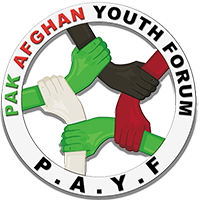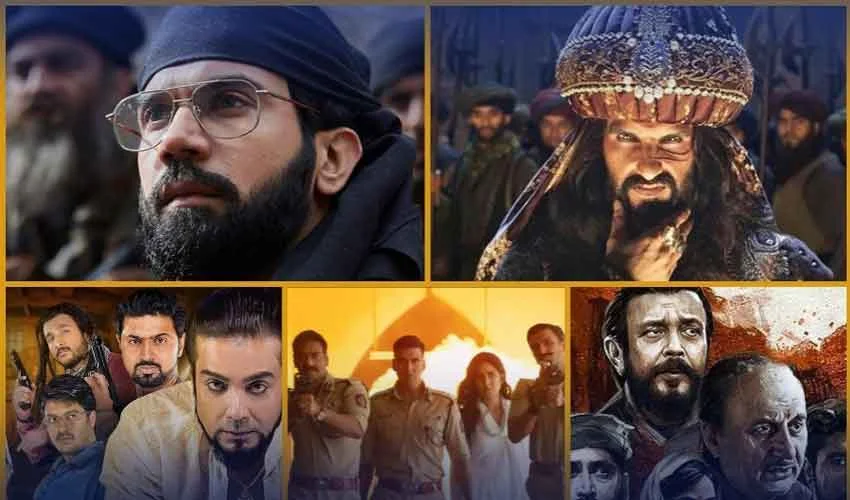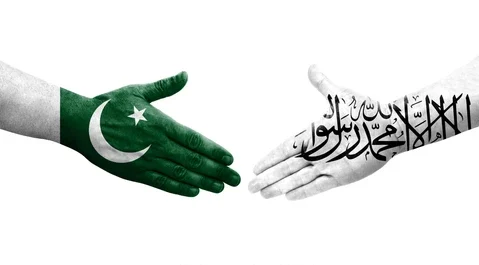Is Indian Cinema involved in perpetuating Islamophobia, and racism against Muslims of different ethnic backgrounds such as Afghans, Pakistanis, Kashmiris & Arabs? Why is there no censor on the sensitivities of communities in Indian entertainment industry? Is Indian soft power targeted towards developing an “Us” vs “Them” while rewriting false history, especially through the lens of anti-Muslim sentiments?
Lets explore this today with a few examples.
Bollywood’s portrayal of Muslims especially Pakistanis & Afghans has been problematic for decades. During the Congress era, films like Khuda Gawah (1992) & Veer-Zara (2004) subtly targeted Muslim identity, reinforcing stereotypes. These films laid the groundwork for a pattern of misrepresentation that has persisted.
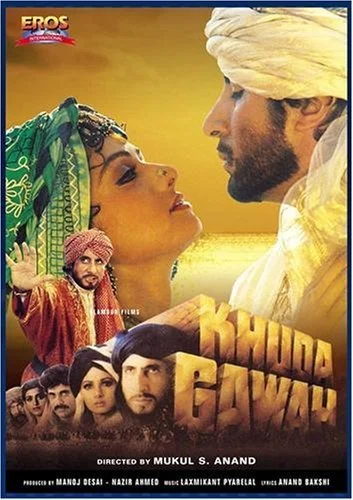
The trend continued with Sarfarosh (1999), which linked Muslims to terrorism, and Fanaa (2006), which romanticized how the violent Muslim rebel falls for a blind hindu girl. Films like Kurbaan (2009) also depicted Muslims as extremists, continuing the negative portrayal established by earlier films.


The trend is also evident in Gadar 1 (2001) and its sequel Gadar 2 (2023), which promote anti-Pakistan sentiments. Bombay (1995) and Dhup ki Dewar (2008) depict communal violence. Agent Vinod (2012) frame Muslims negatively, continuing the pattern of harmful portrayals.
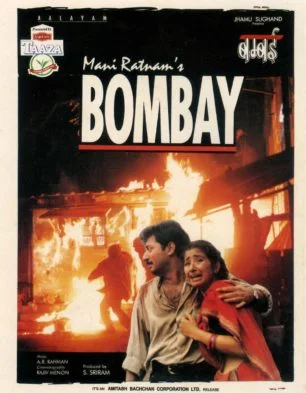

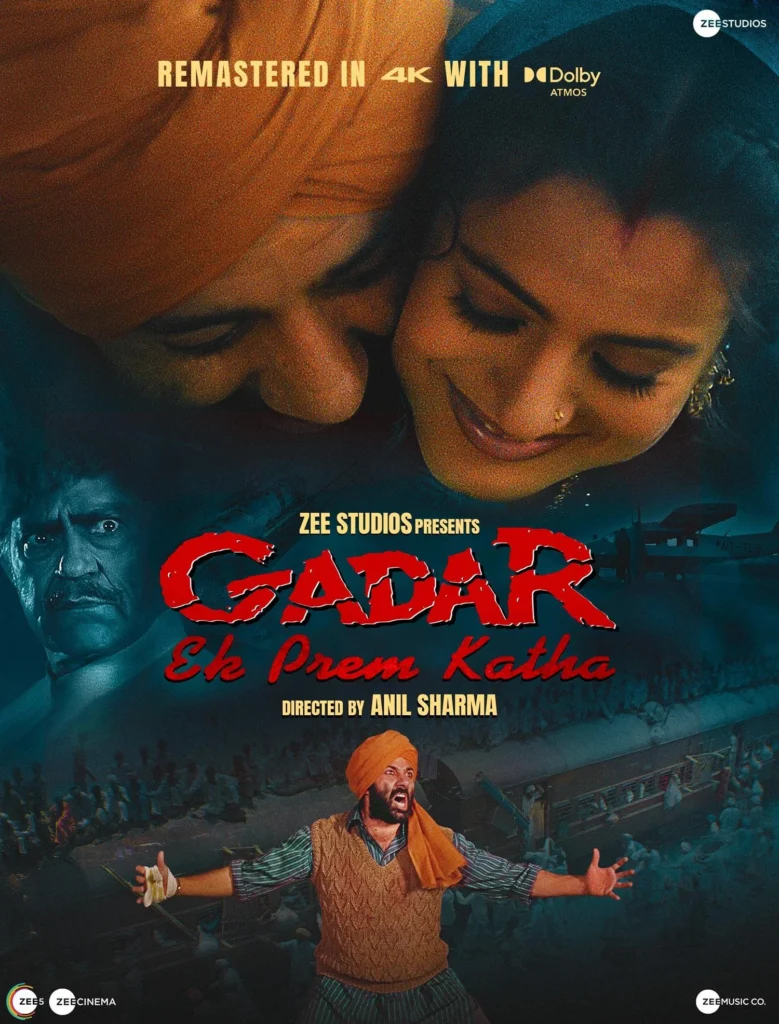
Bollywood’s Shift Under BJP
As political climates shifted, Bollywood’s approach became more explicit. Under the BJP regime, films such as The Kashmir Files (2022) and The Kerala Story (2023) have openly promoted anti-Muslim sentiments, presenting Muslims and Pakistanis in a highly negative light. Pathaan (2023) and Ram Setu (2022) further this agenda, with Shershaah (2021) contrasting Indian heroism with Pakistani antagonism while Kalank (2019) explores Hindu-Muslim tensions with bias.


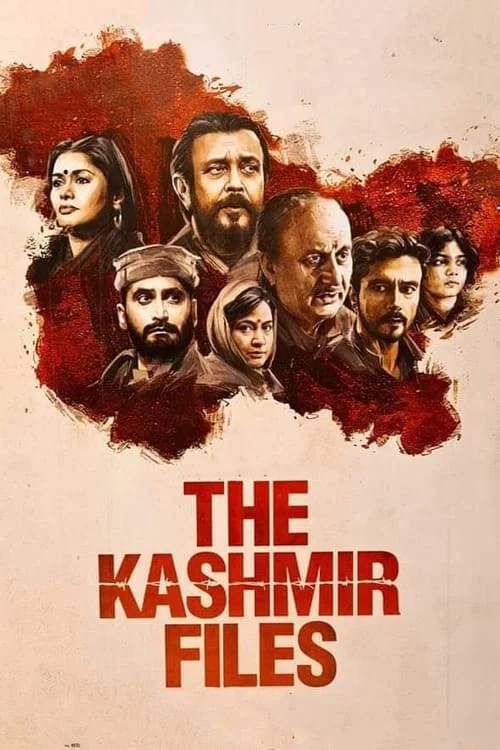

Rise of Hindu nationalism and Islamophobia in Indian media intensifies during the BJP tenure. Films like Padmaavat (2018) and Panipat (2019) demonize Muslim rulers, perpetuating stereotypes of violence and barbarity. “Padmaavat” portrays 13th-century Afghan king Alauddin Khilji as a scheming ruler. Anurag Singh’s film Kesari depicts the 1897 Battle of Saragarhi, where Sikhs faced Afridi and Orakzai tribesmen. It received criticism for its inaccurate representation of the Afghans and their inspirational leaders.
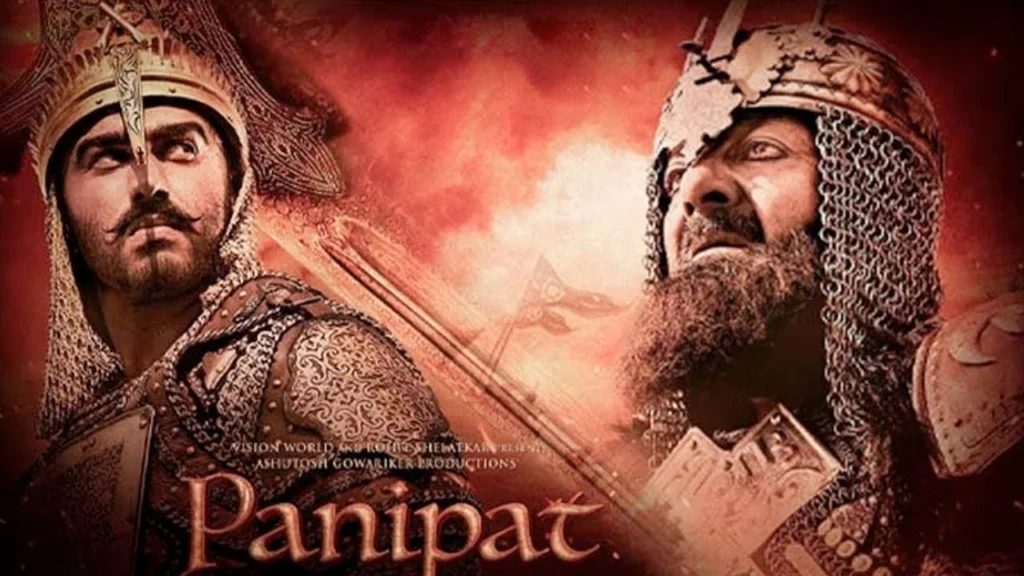
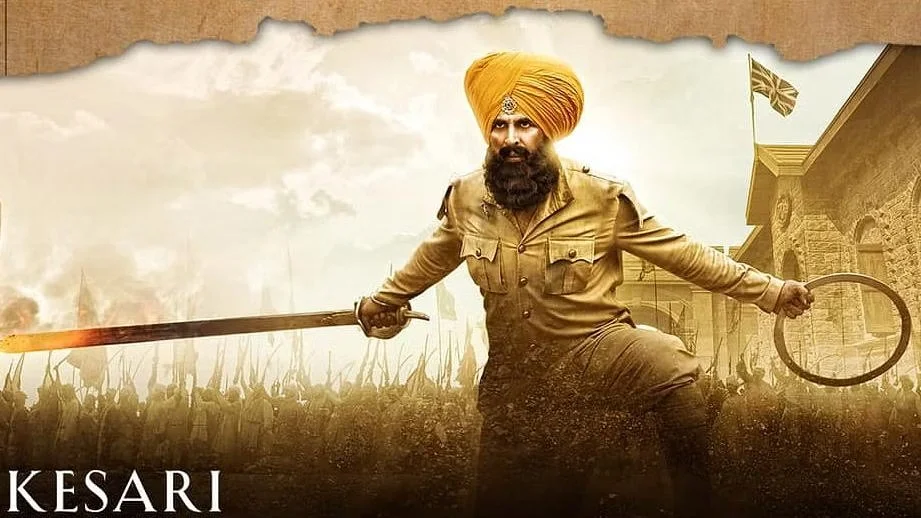
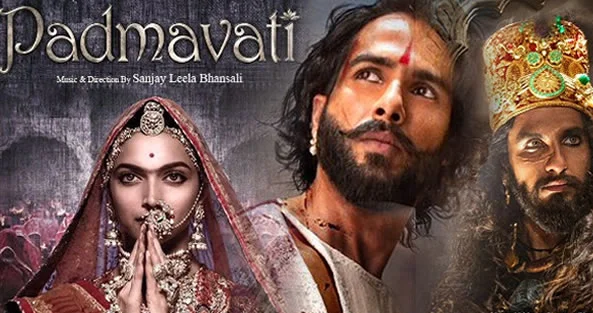
Remember the controversy surrounding “Panipat” (2019)? The film depicts the 1761 Battle of Panipat fought between the forces of Afghan ruler Ahmad Shah Abdali and the army of Marathas, a Hindu community. Afghans were outraged by the portrayal of their national hero, Ahmad Shah Abdali. Distorting history to fit a narrative only creates a one-sided story.
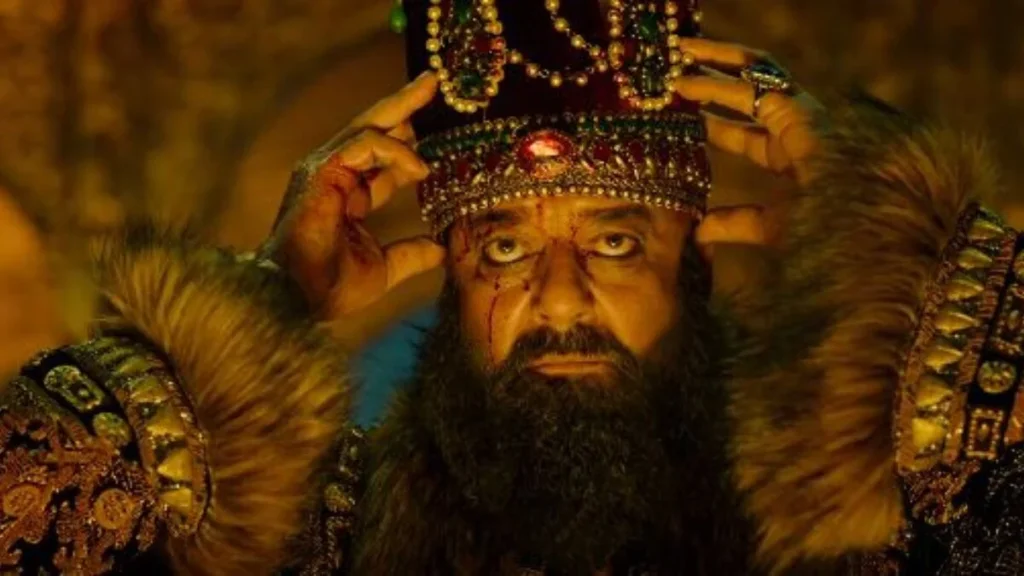

Recent additions like Raazi (2018), Tanhaji (2020) and Taanav (2022) propagate negative stereotypes about Muslims, with Hamare Baarah (2024) distorted Qur’an teachings while films like Phantom (2015) follow an anti-Pakistan agenda. Tiger Zinda Hai (2017) and Uri (2019) also depict Pakistan in a negative light.
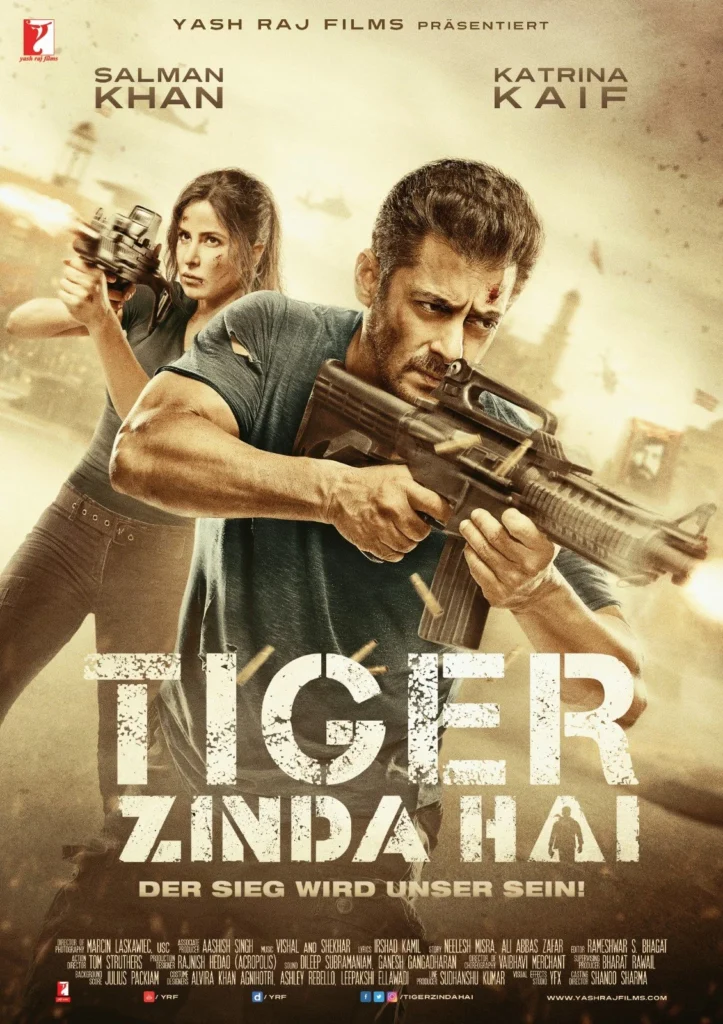


Also See: Polio Surge Spurs Pak-Afghan Border Vaccination
Anti-Muslim Sentiments in TV Shows
OTT platforms have also contributed to this narrative. Series like The Family Man (2019-2021) and Sacred Games (2018-2019) portray Muslims as radicals, reinforcing harmful stereotypes and aligning with the broader anti-Muslim agenda seen in Bollywood films which engender anti-Muslim sentiments. The recent famous Netflix series Heeramandi (2024) also portrayed false cultural and religious values of Muslims of sub-continent.

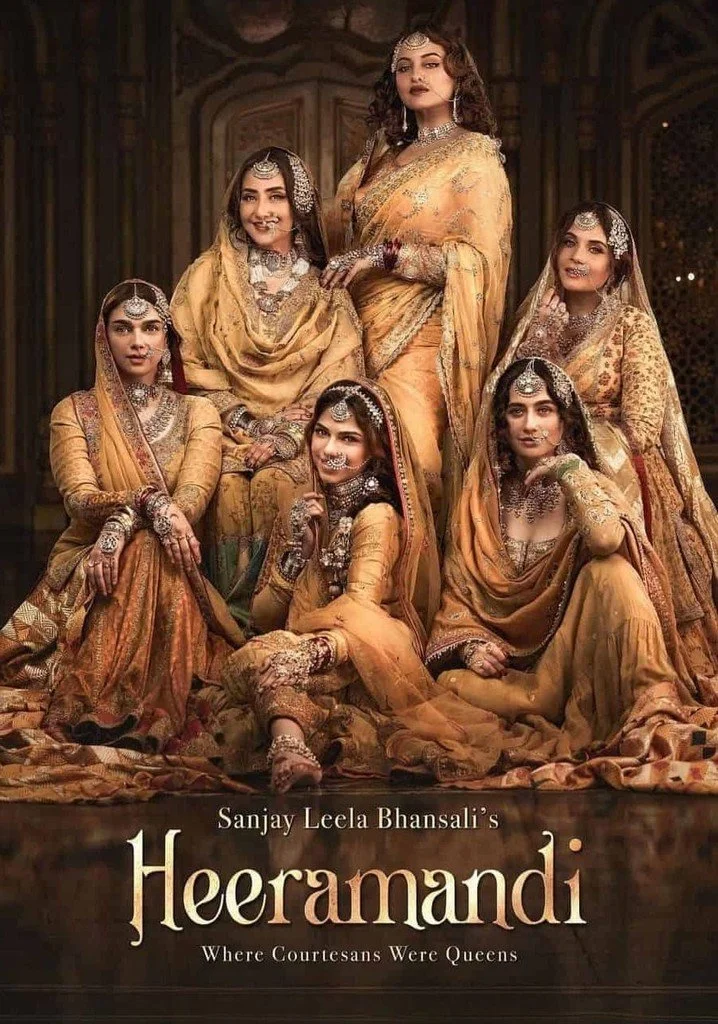
Shaping Public Perceptions
The portrayal of Muslims, in particular Afghans & Pakistanis, in these films is not just about entertainment—it shapes public perceptions and fuels Islamophobia. The massive budgets and high-profile actors like Shahrukh Khan, Salman Khan, John Abraham, Aamir Khan, Saif Ali Khan, Akshay Kumar, Sunny Deol etc involved in these projects. They have huge fan following across the world that underscore their impact deeper on societal attitudes. The substantial budgets and star-studded casts behind these films underscore the significant impact of Bollywood’s narratives. Films and series that perpetuate negative stereotypes contribute to a broader narrative of Islamophobia and shape public attitudes towards Muslims.
![Shahrukh Khan and Aamir Khan with Indian PM Narendra Modi [via Instagram]](https://pkafgyouthforum.com/wp-content/uploads/2024/10/GX2IcQMWEAADPac.webp)
State-Sponsored Hate
During the Congress era, Bollywood films included subtle messaging against Muslims, presenting biased portrayals. This approach was more covert, but still contributed to a skewed perception of Muslim identity. In contrast, the current BJP regime has taken a more overt approach. Films like The Kashmir Files and The Kerala Story receive significant state support, with tickets even made tax-free in BJP-governed states to drive up viewership.
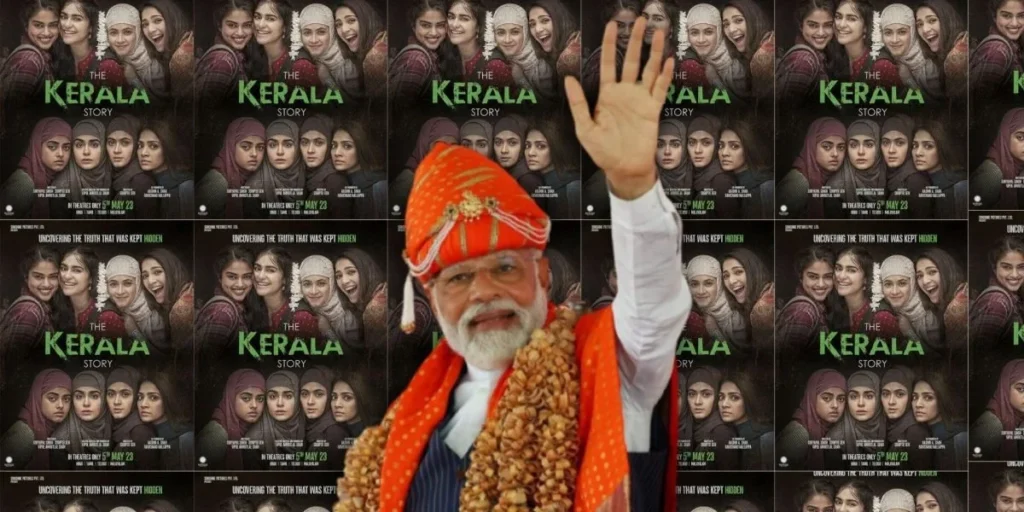
A Deeper Agenda
This open promotion of anti-Muslim sentiments and content represents a clear shift in strategy. Also Bollywood’s role in shaping these narratives reflects a deeper political agenda that affects how Muslims are perceived both in India and globally. Addressing these issues is crucial and a Global Call to India is needed to promote more accurate and respectful representation of diverse identities via art and media.
PAYF Insights are social media threads by various authors, reproduced here for wider consumption.
